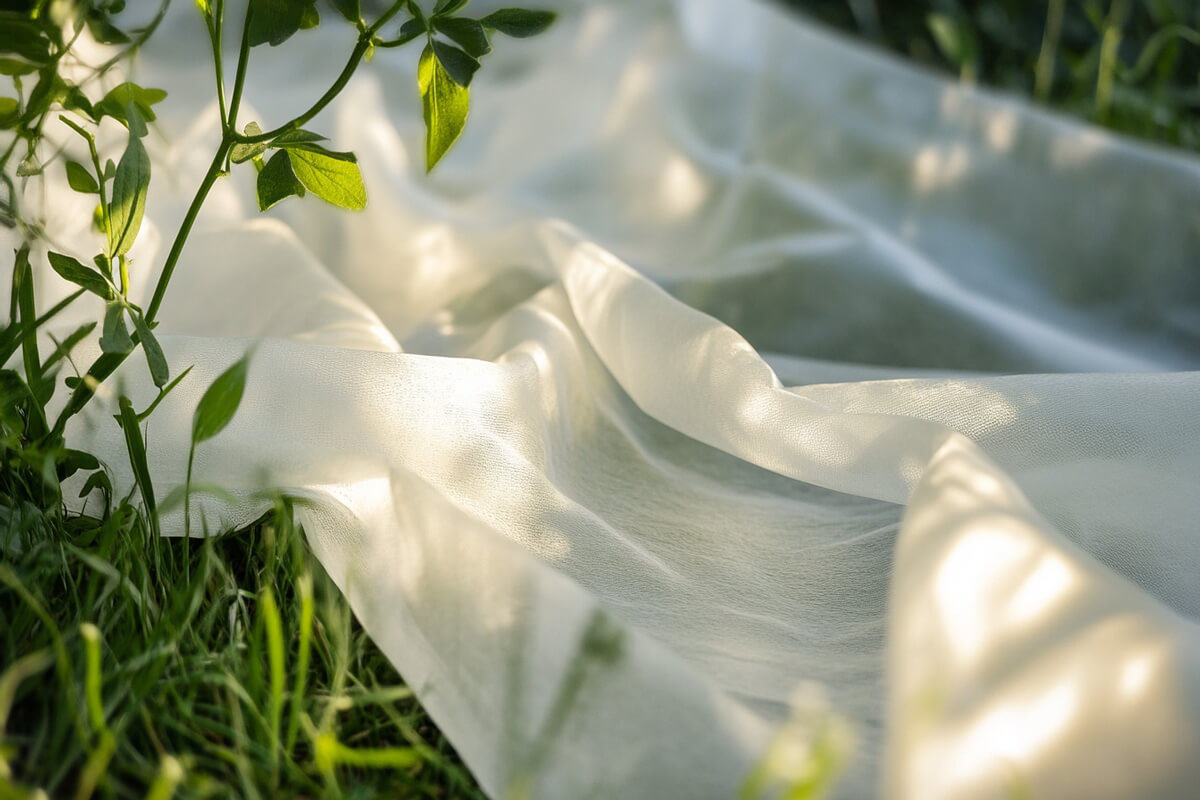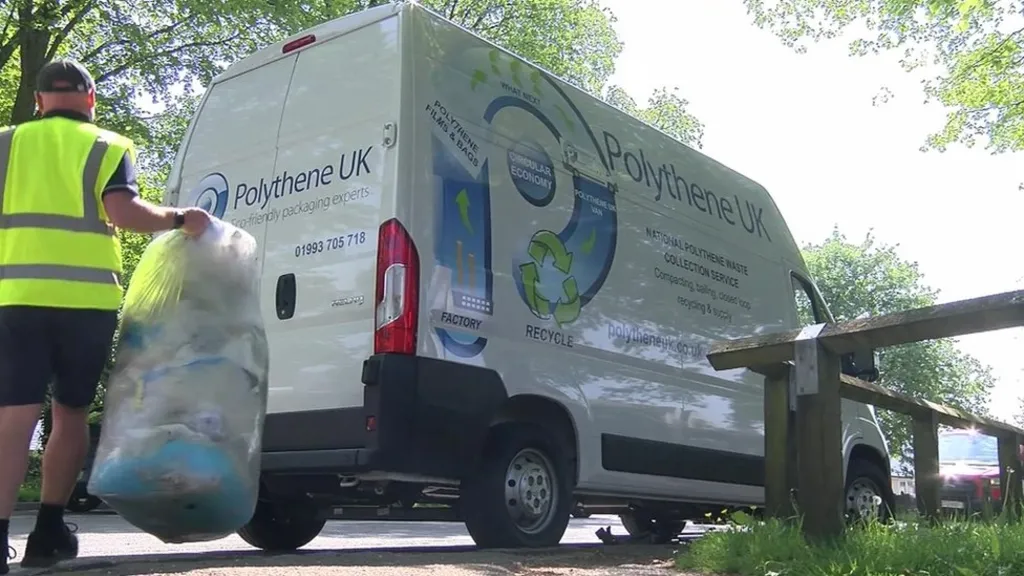Biodegradable plastics are becoming increasingly popular as businesses seek greener solutions to reduce their environmental impact. These plastics are special because they can break down into natural substances through microbial action, unlike traditional plastics, which can persist in the environment for centuries. This makes them a key player in efforts to address plastic waste and pollution.
Biodegradable plastics are defined by their ability to degrade under specific conditions, such as exposure to heat, moisture, or oxygen. However, not all biodegradable plastics are the same, and many require controlled environments like industrial composting facilities to break down fully.
A great example of the need for sustainable plastic alternatives is in agriculture, where approximately 135,500 tonnes of agricultural plastic waste are generated annually in the UK. Biodegradable plastics offer a potential solution for the sustainable disposal of such waste, reducing the environmental burden.
Table of contents:
- How you can recognise that plastics are biodegradable
- When biodegradable plastics can be used
- When biodegradable plastics shouldn’t be used
- How biodegradable plastics should be recycled
How you can recognise that plastics are biodegradable
For British businesses seeking to adopt sustainable practices, identifying safe biodegradable plastics requires familiarity with the relevant certification systems and standards. The most important certification for the UK market is the EN 13432 standard, which has become particularly significant since Brexit. This European standard, still recognised and used in Britain, provides the most reliable indicator that a plastic product will biodegrade effectively in industrial composting facilities. If you see this certification label, you can be confident the material has passed serious testing to verify it will decompose within 12 weeks under industrial composting conditions.
Another certification you might see is the OK Compost Industrial mark, administered by TÜV Austria. This certification is particularly valuable for businesses because it guarantees that all components of the product, including inks and adhesives, meet strict biodegradability requirements. This comprehensive approach helps protect your company from unintentional greenwashing claims.
For businesses considering consumer-facing products, the Home Compostable certification deserves special attention. This standard ensures that products can break down in domestic composting conditions, which typically involve lower temperatures and less controlled environments than industrial facilities. This certification can be particularly appealing for retail businesses, as it allows you to market products that align with consumers’ growing preference for environmentally responsible options.
When sourcing biodegradable plastics, make sure your procurement team is trained to look beyond mere claims of biodegradability and verify these specific certifications. This due diligence protects your business reputation and ensures compliance with emerging environmental regulations in the UK market.
When biodegradable plastics can be used
Biodegradable plastics are an excellent solution for reducing plastic waste and supporting a greener planet. However, they are not a complete replacement for all traditional plastics. Their effectiveness depends on proper usage and disposal.
Here are some industries that can benefit from using biodegradable plastics:
- Food industry. For food service businesses, compostable packaging presents a compelling opportunity. Restaurants, catering companies, and food delivery services can significantly reduce their environmental impact by switching to biodegradable containers, particularly in urban areas where industrial composting facilities are readily available. For instance, a chain of London restaurants might use biodegradable takeaway containers that can be processed alongside food waste, streamlining waste management and improving their sustainability credentials
- Agriculture industry. The agricultural sector in the UK has found particular success with biodegradable mulch films. These films protect crops and suppress weeds during the growing season, then naturally break down into the soil after harvest. This makes it so that farmers no longer need to spend a lot of time and effort removing and getting rid of traditional plastic films. So in the end, it is good for the environment and their wallets.
- Event industry. Event management companies and venues can also benefit from biodegradable tableware solutions. When hosting outdoor festivals, corporate events, or large gatherings where traditional washable items aren’t practical, biodegradable plates, cups, and cutlery can significantly reduce the event’s environmental footprint. These items can be collected with food waste and sent to industrial composting facilities, simplifying post-event cleanup.
- Retail industry. For retail businesses, biodegradable shopping bags represent more than just an environmentally conscious choice — they’re becoming increasingly important as the UK strengthens its regulations on single-use plastics. By using these alternatives early, retailers can keep up with changes to the rules and meet the growing demand for shopping experiences that are better for the environment.
- Beverage industry. Coffee shops and tea retailers, can make the most of biodegradable packaging for their products. Compostable coffee pods and tea bags are great for the environment and also solve the problem of conventional plastic tea bags and coffee pods getting in the way of organic waste.
However, it’s important to understand that using biodegradable plastics depends on whether your local waste management system is ready for them. Before you start using them, businesses should check that there are good industrial composting facilities in their area and that their waste management provider can handle these materials properly. This makes sure that the environmental benefits of biodegradable plastics are fully used, instead of being lost because of poor disposal.
When biodegradable plastics shouldn’t be used
While biodegradable plastics have many advantages, they are not suitable for every situation. Here are some examples of bad applications and why they should be avoided:
- Long-term storage containers: these products need to maintain structural integrity over time, which biodegradable plastics may not provide.
- Marine environments: biodegradable plastics may not degrade effectively in saltwater, potentially contributing to ocean pollution.
- Recyclable plastic streams: mixing biodegradable plastics with conventional recycling can contaminate the recycling process.
Using biodegradable plastics in these contexts can lead to unintended environmental or functional issues.
How biodegradable plastics should be recycled
Proper recycling is essential for biodegradable plastics. They must be processed in the right facilities to ensure complete breakdown. Businesses can take the following steps:
- Industrial composting. Send biodegradable plastics to certified industrial composting facilities where the conditions are optimal for decomposition. These facilities maintain perfect temperature controls, typically around 50-60°C, along with specific moisture levels and microbial activity that enable complete decomposition. For example, a biodegradable plastic container that might take centuries to degrade in a landfill can break down within 12 weeks under these controlled conditions.
- Separate collection. It is very important to keep biodegradable plastics separate from other types of recycling. When biodegradable materials are put into recycling bins, they can make the quality of the recycled plastic products worse. This can mean that whole batches of products are no longer usable. This problem can cost recycling centres money, and so businesses across the UK will have to pay more to dispose of their waste. To stop this from happening, businesses should put clearly marked bins in place and make sure that their staff know how to separate waste correctly. You can help make sure people are following these rules by having signs to show where to put different types of rubbish and checking that people are following the rules.
- Check local guidelines. Before implementing biodegradable plastics in your business operations, it’s essential to understand your local waste management infrastructure. The availability of industrial composting facilities varies significantly across different regions of the UK. Some areas may have well-established organic waste collection services, while others might have limited options for processing biodegradable materials.
If these requirements are not met, biodegradable plastics may not degrade as intended, creating additional waste problems. By following these recycling practices, businesses can ensure that their use of biodegradable plastics contributes to environmental sustainability.
Final word
Biodegradable plastics offer businesses an opportunity to reduce their environmental footprint and support sustainable practices. While they are not a universal replacement for traditional plastics, their proper use and disposal can significantly reduce waste and pollution.
If your business is looking to adopt biodegradable plastics, Polythene UK offers bulk orders tailored to your needs. Contact us today to learn more about our range of environmentally friendly plastic solutions.




